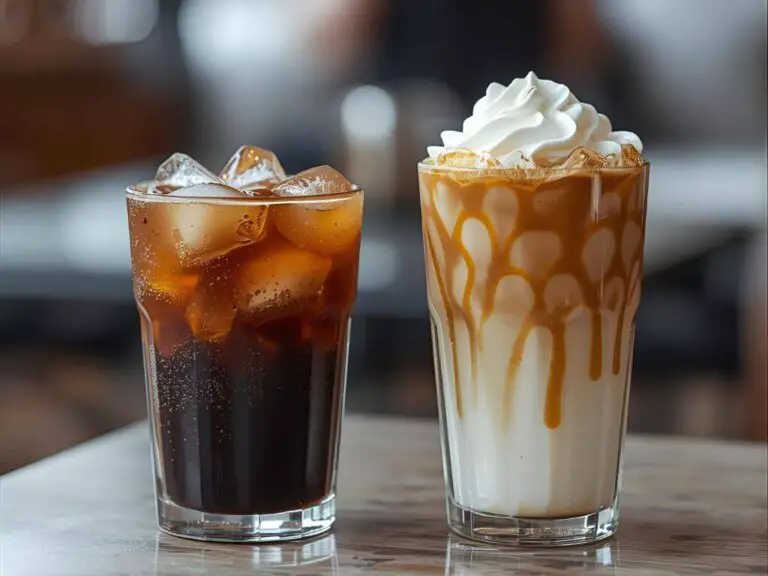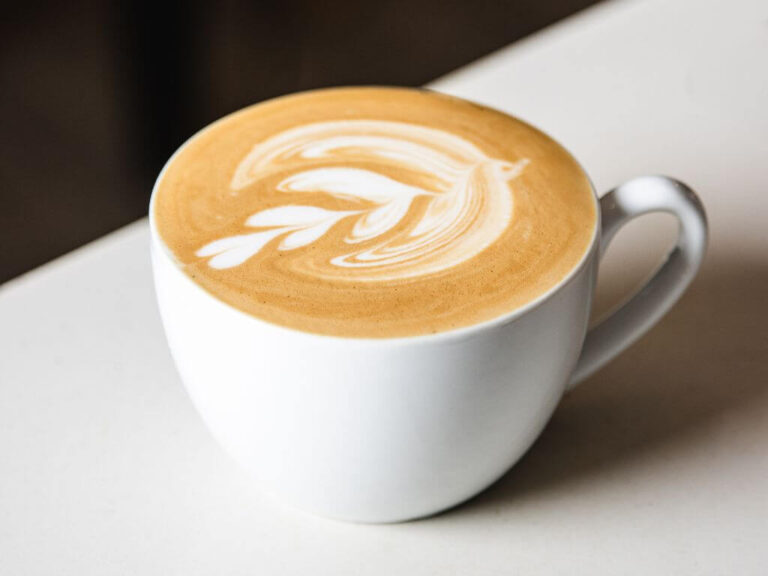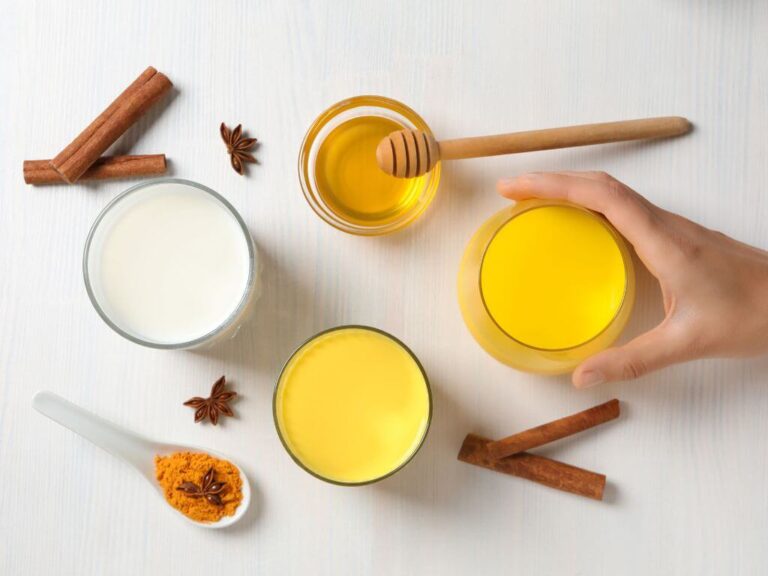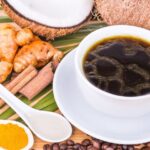Chai Latte: History, Benefits, and How to Make It at Home
There’s something magical about wrapping your hands around a warm mug of chai latte—the rich aroma of cinnamon and cardamom, the creamy sweetness, and the gentle caffeine kick that feels like a cozy morning hug. But what exactly is a chai latte, and why has it become a global obsession?
A chai latte is a Western adaptation of India’s masala chai, blending black tea, steamed milk, and a symphony of spices like ginger, cloves, and black pepper. Unlike a traditional latte (which uses espresso), a chai latte gets its depth from tea and spices, making it a flavorful, lower-caffeine alternative to coffee.
In this guide, we’ll explore:
✅ The fascinating history of chai—from ancient Ayurveda to modern coffee shops.
✅ How to make the perfect chai latte at home (3 easy methods!).
✅ Creative twists (like pumpkin spice or dirty chai) to spice up your routine.
✅ Health benefits—why your chai habit might be good for you.
✅ Where to find the best chai lattes worldwide.
Ready to become a chai expert? Let’s dive in!
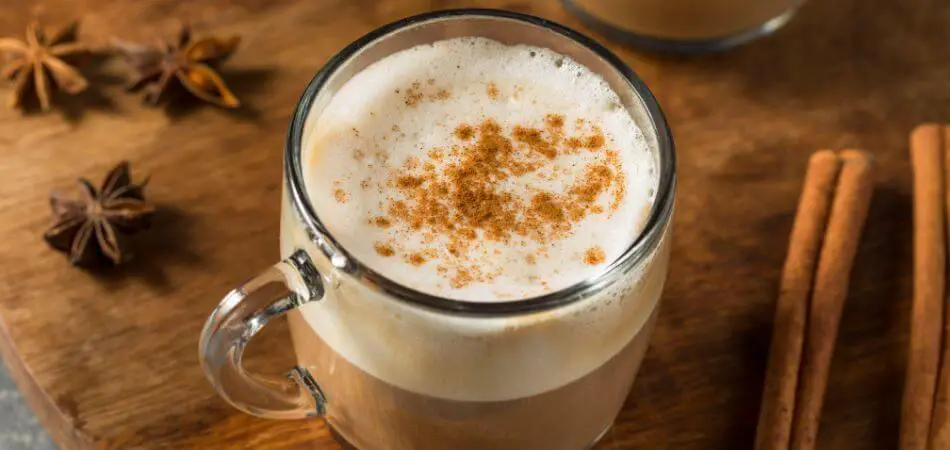
The Rich History of Chai Latte
Ancient Roots: Chai in India
Chai isn’t just a drink in India—it’s a daily ritual, a symbol of hospitality, and a 5,000-year-old tradition rooted in Ayurveda. The original masala chai (“spiced tea”) was a medicinal brew made with:
- Black tea (introduced by British colonizers in the 1800s).
- Spices like ginger (for digestion) and cardamom (for detox).
- Milk and sweeteners (jaggery or honey) for balance.
Fun fact: Street vendors (“chai wallahs“) popularized masala chai by serving it in clay cups for an earthy flavor!
From India to the World: The Chai Latte Evolution
In the 1990s, Western coffee shops reinvented masala chai as the “chai latte”—smoother, sweeter, and milkier than its traditional counterpart. Key differences:
| Traditional Masala Chai | Western Chai Latte |
|---|---|
| Strong, spicy, less sweet | Milder, creamier, sweeter |
| Simmered with spices | Often uses pre-made syrup |
| Served in small cups | Large, frothy mugs |
Today, chai lattes are a $4 billion industry, bridging cultures in every sip.
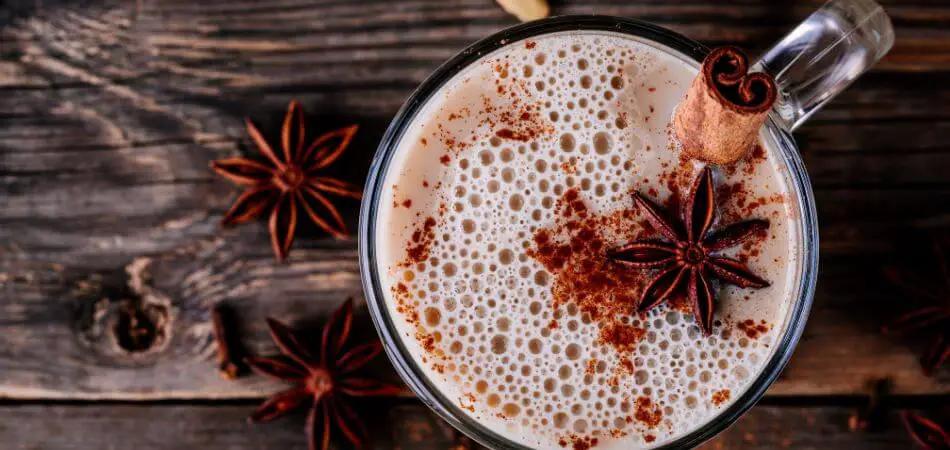
What’s in a Chai Latte? (Key Ingredients)
A great chai latte balances four elements:
1. The Tea
- Black tea (Assam or Darjeeling) is the base. It’s bold enough to stand up to spices.
- Pro tip: Avoid over-brewing (3-5 minutes max) to prevent bitterness.
2. The Spices
The classic “chai spice blend” includes:
- Cinnamon (warmth)
- Cardamom (citrusy sweetness)
- Ginger (zingy kick)
- Cloves (earthy depth)
- Black pepper (subtle heat)
Fun twist: Star anise or nutmeg add complexity!
3. The Milk
Dairy or plant-based—each changes the flavor:
| Milk Type | Best For |
|---|---|
| Whole milk | Creamy, authentic texture |
| Oat milk | Naturally sweet, froths well |
| Coconut milk | Tropical vibe |
4. Sweeteners
- Sugar (traditional)
- Honey (floral notes)
- Maple syrup (vegan-friendly)
Skip the sugar? Try dates or stevia for a healthier sip.
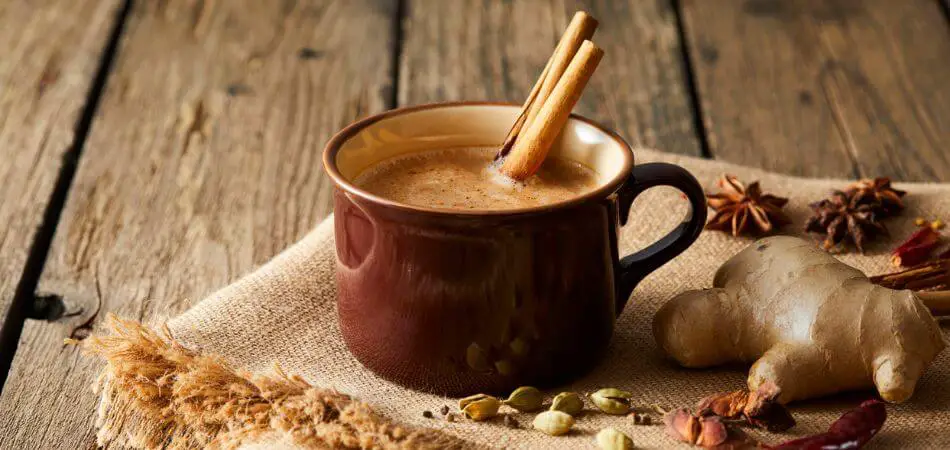
How to Make the Perfect Chai Latte at Home
Making a café-quality chai latte at home is easier than you think! Here are three foolproof methods, from traditional to quick-fix:
Method 1: Traditional Stovetop Chai (Authentic Flavor)
This method delivers the richest, most aromatic chai—just like Indian chai wallahs make it.
Ingredients (Serves 2):
- 2 cups water
- 2 cups milk (dairy or plant-based)
- 2 tbsp loose-leaf black tea (or 2 tea bags)
- 4-5 cardamom pods (crushed)
- 1 cinnamon stick
- 1-inch fresh ginger (sliced)
- 4 cloves
- 5 black peppercorns
- Sweetener to taste (sugar, honey, or jaggery)
Step-by-Step:
- Toast the spices (optional): Dry roast cardamom, cinnamon, cloves, and peppercorns in a pot for 1 minute to enhance their oils.
- Simmer spices in water: Add 2 cups water and ginger. Boil for 5 minutes.
- Add tea: Reduce heat, add tea leaves, and steep for 3-4 minutes.
- Add milk & sweetener: Pour in milk and sweetener. Heat until steaming (don’t boil!).
- Strain & serve: Pour through a sieve into mugs.
Pro Tips:
✔ Crush spices fresh for maximum flavor.
✔ Adjust strength: More tea = stronger chai; more milk = creamier.
Method 2: Quick Chai Latte (5 Minutes or Less!)
Short on time? Use chai concentrate or tea bags for an instant latte.
Ingredients:
- 1 cup hot water
- 1 chai tea bag (or 1 tbsp chai concentrate)
- 1 cup steamed milk
- Sweetener (optional)
Steps:
- Steep the tea: Brew chai tea bag in hot water for 3-5 minutes.
- Heat & froth milk: Microwave milk for 1 minute or use a frother.
- Combine: Pour tea into a mug, add milk, and sweeten.
Best Store-Bought Concentrates:
- Oregon Chai (classic sweet)
- Tazo Chai (bold spice)
- Big Train Spiced Chai (creamy texture)
Method 3: Iced Chai Latte (Summer Refresher)
Perfect for hot days—smooth, spicy, and refreshing!
Ingredients:
- 1 cup brewed chai (cooled)
- 1 cup cold milk
- Ice cubes
- 1 tsp vanilla syrup (optional)
Steps:
- Brew chai strong: Use 2 tea bags for extra flavor.
- Cool it down: Refrigerate for 1 hour or pour over ice.
- Layer: Fill a glass with ice, add chai, then milk. Stir well.
Milk Pairings for Iced Chai:
- Oat milk (creamiest)
- Almond milk (nutty flavor)
- Coconut milk (tropical twist)
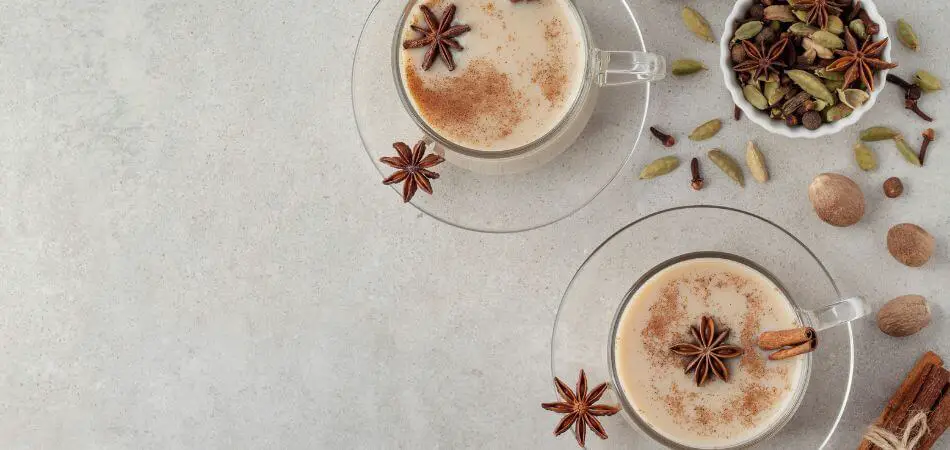
Creative Chai Latte Variations to Try
Why stick to basic chai when you can experiment? Here are 3 delicious twists:
1. Dirty Chai Latte (Coffee Lover’s Dream)
Add a shot of espresso to your chai for a caffeine boost.
Recipe:
- Make a standard chai latte.
- Add 1 shot of espresso (or ½ cup strong coffee).
- Top with frothed milk.
Why it works: The coffee enhances chai’s spices without overpowering them.
2. Pumpkin Spice Chai Latte (Fall Favorite)
Merge two iconic flavors into one cozy drink.
Ingredients:
- 1 cup chai tea
- ½ cup steamed milk
- 1 tbsp pumpkin puree
- ½ tsp pumpkin pie spice
- 1 tsp maple syrup
Method: Whisk pumpkin and spices into warm chai, then add milk.
3. Vegan Golden Chai (Turmeric Power)
Swap black tea for turmeric-based “golden milk” for an anti-inflammatory boost.
Ingredients:
- 1 cup almond milk
- ½ tsp turmeric
- ¼ tsp each cinnamon, ginger, cardamom
- 1 tsp agave syrup
Steps: Simmer all ingredients for 5 minutes, strain, and enjoy!
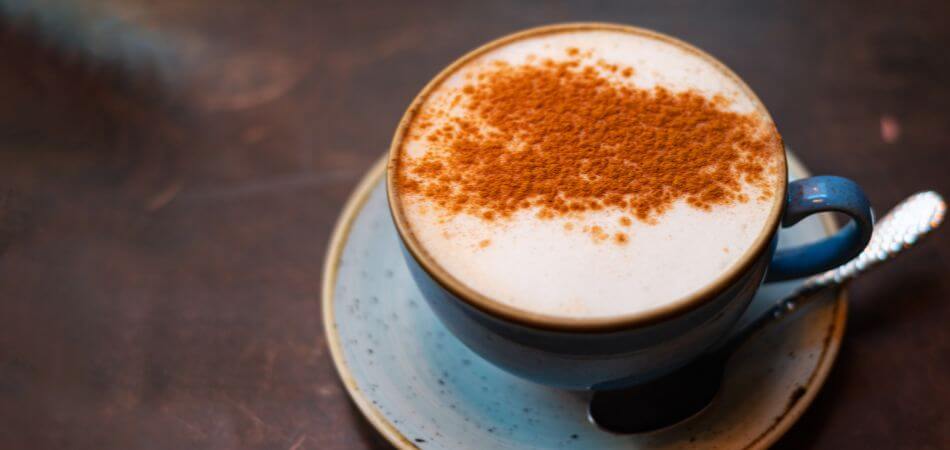
Health Benefits of Chai Latte
Beyond its delicious taste, chai latte offers surprising wellness perks:
1. Antioxidant-Rich Black Tea
- Contains theaflavins, which may support heart health.
- Lower in caffeine than coffee (50mg vs. 95mg per cup).
2. Digestive Aid from Spices
- Ginger: Soothes nausea and bloating.
- Cardamom: Helps detoxify the body.
- Cinnamon: Regulates blood sugar levels.
3. Immune-Boosting Properties
- Cloves have antiviral effects.
- Black pepper enhances nutrient absorption.
Pro Tip: Use raw honey instead of sugar for extra antimicrobial benefits!
Where to Find the Best Chai Lattes
Whether you’re traveling or exploring your hometown, here’s where to find exceptional chai lattes around the world:
Top Cafés for Authentic Chai
| Location | Spot | Why It’s Special |
|---|---|---|
| Mumbai, India | Kyani & Co. | 100-year-old Irani café with cardamom-heavy chai |
| London, UK | Dishoom | “House chai” with ginger and vanilla notes |
| New York, USA | Chaiwali | Organic, small-batch masala chai |
| Melbourne, Australia | Third Wave | Specialty chai with house-made spice blends |
| Toronto, Canada | Chaiiwala | Traditional clay cup (“kulhad”) experience |
Coffee Chains with Great Chai Options
- Starbucks: Ask for “less syrup” and “extra spice”
- Peet’s Coffee: Uses real tea leaves (not powder)
- Local Tip: Many independent cafés craft their own chai concentrate—always ask!
How to Order Like a Pro:
✔ “Can you make it extra spicy?” (More ginger/pepper)
✔ “Half sweet, please” (Balances pre-sweetened mixes)
✔ “Alternative milk” (Oat milk froths best)
Chai Latte FAQs (Answered by Experts)
1. Is chai latte caffeine-free?
No—black tea contains 30-50mg caffeine per cup (vs. 95mg in coffee). For less caffeine:
- Use rooibos tea (naturally caffeine-free)
- Steep for 2 minutes instead of 5
2. Can I make chai without tea?
Yes! Try these bases:
- Turmeric (“golden chai”)
- Dandelion root (earthy flavor)
- Chicory (coffee-like depth)
3. What’s the difference between chai latte and regular latte?
| Chai Latte | Regular Latte |
|---|---|
| Black tea + spices | Espresso + milk |
| 50mg caffeine | 150mg caffeine |
| Sweet/spiced flavor | Bitter/creamy |
4. How long does homemade chai concentrate last?
- Fridge: 1 week (in airtight jar)
- Freezer: 3 months (as ice cubes)
Conclusion: Why Chai Latte Belongs in Your Routine
Chai latte is more than a trend—it’s a 5,000-year-old tradition that bridges cultures, spices up your mornings, and even boosts your health. Whether you:
- Brew it traditionally with freshly crushed spices
- Whip up a quick version with concentrate
- Get creative with pumpkin or dirty chai twists
…there’s a perfect chai for every palate.
Your Turn!
👉 Try our stovetop recipe this weekend and tag #ChaiLatteLove!
Bonus: 3 Pro Tips for Next-Level Chai
- Spice Storage: Keep whole spices in the freezer to preserve oils.
- Froth Hack: Shake milk in a mason jar before microwaving for foam.
- Chai Cubes: Freeze strong chai in ice trays for instant iced lattes.

